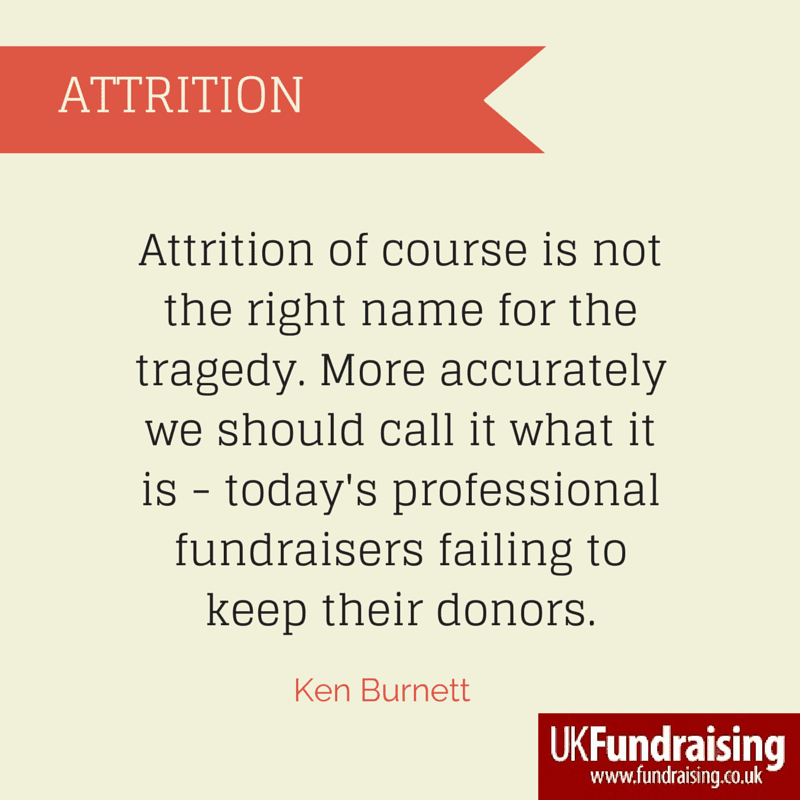Stephen Pidgeon book explains how to love your donors (to death)
The Directory of Social Change has today published a new book from fundraising consultant and direct marketing specialist Stephen Pidgeon. ‘How to love your donors (to death)‘ features practical advice and commentary on how fundraisers can improve their communications with donors.
Drawing on his 30 years of experience of fundraising campaigns, Pidgeon gives examples of both good and bad fundraising, often bemoaning the poor levels of donor stewardship that hold many charities back from raising and achieving more.
The ‘to death’ element of the title of course refers to legacies, the final big gift that more donors could be persuaded to make if only more fundraisers could retain donors’ support and interest for longer.
As Pidgeon says:
“Legacies are not the gift of angels, but will increasingly come from donors who are loved and nurtured in their relationship with the favourite charity”.
It isn’t just some fundraising techniques that come in for Pidgeon’s criticism: he also notes the “crass attitude” towards donors of many charity staff outside the fundraising team.
The tone is far from negative though, simply plain speaking. Joe Saxton, Driver of Ideas at nfpSynergy, says of the book:
Advertisement
“If reading this book doesn’t make you shout ‘Yes, yes, yes’ on one page and snort with outrage on the next, I will be very surprised.”
In addition to the many examples quoted, the book also features ‘practical tips’ sections together with ‘Stephen rants’.
Pidgeon founded and ran Tangible (originally Target Direct) for 20 years, working with over 200 major charity clients.
Pidgeon now teaches and advises charities around the world. in 2013 he became a Visiting Professor of Direct Response Fundraising at the Centre for Sustainable Philanthropy at Plymouth University. The Director of the Centre, Professor Adrian Sargeant, describes his book as:
‘Tough, opinionated and just plain right. Pidgeon has raised millions for some of the world’s largest fundraising charities and he hasn’t always done that by being nice.”

Ken Burnett on attrition, from his foreword to Stephen Pidgeon’s How to love your donors (to death)
Author and fundraising consultant Ken Burnett welcomes the fact that his “friend, colleague and respected competitor” has got “his take on donor relationship development into print”.
Commenting on the failure of many charities and fundraisers to focus enough on understanding their donors and communicating with them appropriately, he adds:
“I have to confess, I despair that it had to be written at all. But written it had to be and Stephen has done us all a service in the process”.
The last word
You can tell Pidgeon is committed not just to individual charities and their fundraising, but to the fundraising profession as a whole. On the last page of the book he promotes the value of the Institute of Fundraising.
“There is no question in my mind, every fundraiser should join the Institute; I’d make it compulsory if I could”.
He adds:
“If you want to get on in your career, then start contributing to its running. Volunteers are its lifeblood”.
But his last line he saves for a fundraising ask:
“And if you are as old as me, leave it a legacy”.
How to love your donors (to death) by Stephen Pidgeon is published as part of the Essential Fundraising set by Directory of Social Change at £22.95.



